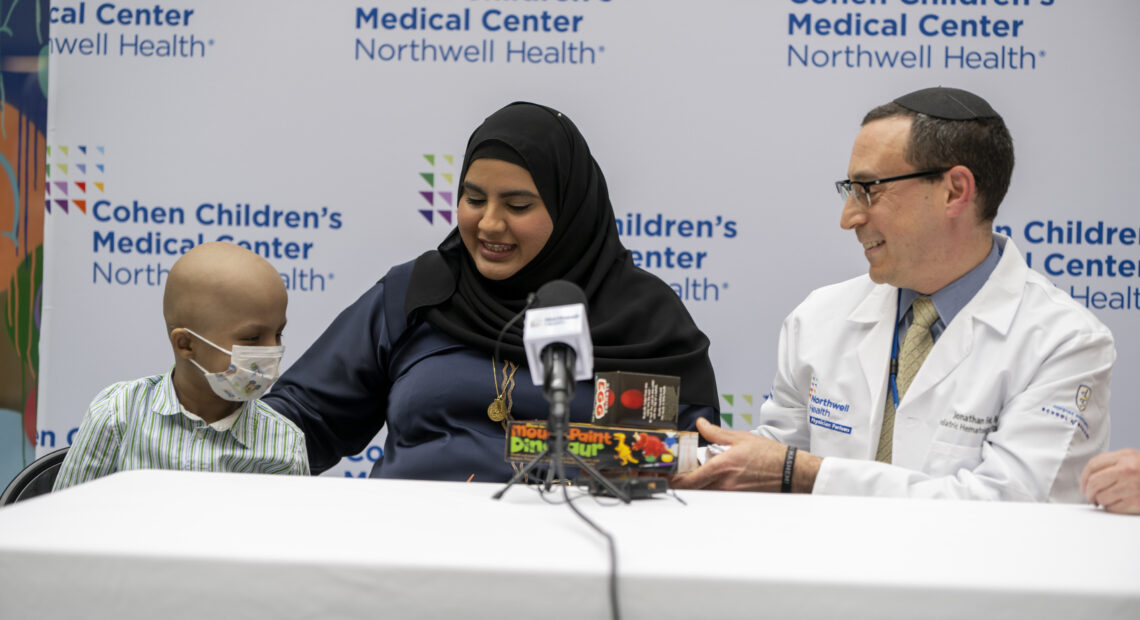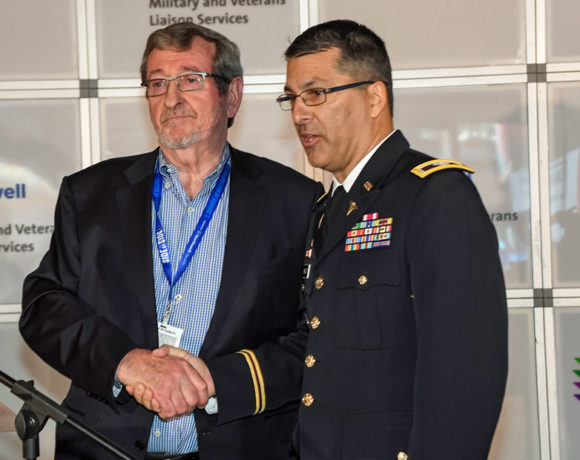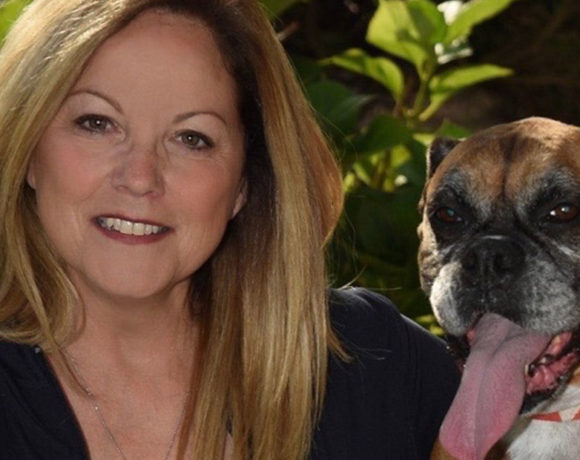The first administration in New York State of Zynteglo, recently approved by the FDA as a one-time gene therapy custom designed to treat the underlying genetic cause of transfusion-dependent beta-thalassemia in adult and pediatric patients, was performed earlier this month at Cohen Children’s Medical Center (Cohen) on an 8-year-old boy from Valley Stream, Long Island.
“It’s not often that we have the opportunity to participate in a moment of medical history,” said Charles L. Schleien, MD, MBA, SVP of pediatric services at Cohen – part of Northwell Health – during a press conference held at the hospital to recognize the groundbreaking treatment on the young patient, Yusef. “The fact that Cohen is the first institution in NYS to offer gene therapy treatment for our young patients with beta-thalassemia is just another example of our commitment to progress and innovation. This is a wonderful achievement and a milestone in our ongoing mission to provide the best care possible. I am very proud of our team of clinicians and researchers who spent years bringing this effort to fruition.”
Transfusion dependent beta-thalassemia is a rare, genetic blood disease caused by mutations in the beta-globin gene that results in significantly reduced or absent hemoglobin production. Patients living with this disorder experience severe anemia and lifelong dependence on regular red blood cell transfusions, a difficult process that patients would need to undergo every few weeks.
“Despite advances in transfusion techniques, transfusions could only serve as a temporary solution for anemia,” said Jon Fish, MD, head of stem cell transplantation and cellular therapy and pediatric hematology at Cohen. “Patients living with beta-thalassemia who would traditionally require regular transfusion faced an increased risk of long-term illness and death due to complications from the resulting iron overload. That’s why the ability to treat our patients with Zynteglo represents a milestone in the care and treatment of our patients.”
There are three steps involved in the Zynteglo gene therapy treatment. In the first pre-treatment phase, the patient’s own stem cells are collected by being moved into the bloodstream. Once this is done, the patient’s blood stem cells are sent to a manufacturing site where all the cells are used to make Zynteglo. This step, which can take up to three months, was performed on little Yusef at Cohen last year.
The second and third steps involve administering the therapy. A week before receiving Zynteglo, the patient undergoes a four-day course of chemotherapy which is done to clear out cells in the bone marrow to make room for Zynteglo cells. After undergoing chemotherapy, the patient rests for two days. Once the treatment team determines that the patient is ready, the third step in the process begins: Zynteglo is administered through IV infusion. Once the genetically altered cells engraft – that is, they begin to work – the patient will produce normal red cells and be cured of beta-thalassemia. On January 9, 2024, Yusef received his Zynteglo, marking the first time a patient received the therapy in New York State.
“The ability to offer Zynteglo represents decades of research and dedication,” said Jeffrey M. Lipton, MD, PhD, director of hematology/oncology and stem cell transplantation/cellular therapy at Cohen. “I am so proud of our team here at Cohen for the commitment they’re demonstrated over the years as we continue to search for new ways to treat our patients. A cure for beta-thalassemia that does not involve a bone marrow transplant from a donor is life-changing – this is an historic moment for all of us.”
Along with being the first hospital in the state to have delivered Zynteglo to a patient, Cohen is part of a national network of centers that have expertise in gene and cell therapies and where physicians receive specialized training to administer this treatment.
While Yusef played happily with his favorite dinosaurs during the press conference, the young boy’s mother, Yusara Ahmed, said, “My own sister was a patient at this hospital 15 years ago when she was diagnosed with thalassemia. At that time, all that was available to her was the bone marrow transplant procedure. We are so grateful that Yusef was able to come to Cohen and receive this new treatment. We live in such a diverse community, and to know that the doctors here can offer this life-saving treatment is a wonderful thing.”








Recent Comments